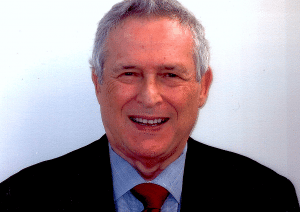
I always thought the most dangerous athletes were National Football League players who delivered concussion-causing blows to the head. They have now been replaced by the former National Basketball Association star Dennis Rodman.
Rodman, one of the premier rebounders during his NBA days, is now a subject of ridicule because of his complimentary remarks about Kim Jung Un, North Korea’s “Supreme Leader.”
Rodman disregarded Kim’s threatening statements about destroying the United States, North Korea’s recent nuclear tests, constantly breaking international agreements regarding nuclear accords with the U.S., its notorious labor camps and other human rights violations and praised Kim as a man of peace, who says war can be prevented if only President Obama would call him, presumably to talk basketball, which they both like.
“He’s a great guy” said Rodman of Kim, disregarding the hundreds of thousands of North Koreans in prison camps. “He’s my friend,” said Rodman, pushing aside the repeated human rights violations and war talk as just politics.
The ludicrousness of Rodman being the first known American to meet with Kim and having a substantive discussion regarding relations with the U.S. would be suitable for a Saturday Night Live or Colbert Report shtick if not for the propaganda value of what he said.
There’s no doubt that Rodman’s defense of one of the world’s most documented dictators of one the world’s most repressive and secret societies will be used as a propaganda tool by Kim, and also by America’s enemies in other parts of the world.
It doesn’t take much editing to turn the Kim-Rodman Friendship Pact into an anti-U.S. propaganda film positioning the U.S. as the war-mongering nation forcing North Korea to engage in nuclear development in order to defend itself from the baseball, football and basketball threat of the U.S. (If only the U.S. would stick to basketball things could be worked out.)
An optimist can say that Rodman’s visit to North Korea is in keeping with the International Olympic Committee’s message that sports can lead to cooperation among nations and word peace.
Unfortunately, sports more often has resulted in providing propaganda for repressive regimes.
The most notorious example was the Nazi Olympics of 1936, which was staged to show the superiority of the German people. China used the Olympics as it “coming out” party. During the cold war East Germany and the Soviet Union used the Olympics as propaganda venues and Arab countries refuse to compete against Israel in international competitions.
The one instance that sports has helped to reduce international tensions was the Ping Pong Diplomacy during the 1970’s, when the American ping pong team in Nagoya, Japan, for the World Table Tennis Championship received a surprise invitation to visit the People's Republic of China. But this too might have had an ulterior motive. At the time, China and Russia were at odds and China might have thought closer relations with the U.S. would provide a strategic advantage.
Even though some reports compared the Rodman trip to the successful Ping Pong Diplomacy, it has little resemblance to the warming of relations between the U.S. and China. The Ping Pong Diplomacy was arranged, supported and included the highest levels of government, resulting in visits by Secretary of State Henry Kissinger to Peking to arrange President Nixon’s historic visit. The Rodman trip was arranged to film an HBO special; no U.S. government officials took part.
People might forget that the Music Diplomacy of 2008, which had the New York Philharmonic perform in Pyongyang, and was approved by the U.S. government, didn’t improve relations between the U.S. and North Korea. (But the philharmonic is not known for its basketball prowess.)
Only time will tell if Basketball Diplomacy will have a positive affect between the U.S. and the repressive North Korean regime. But for the time being the result of Rodman’s positive comments concerning North Korea and its dictator will be a propaganda victory for North Korea.
Arthur Solomon was a senior VP/senior counselor at Burson-Marsteller, and was responsible for restructuring, managing and playing key roles in some of the most significant national and international sports and non-sports programs. He now is a frequent contributor to public relations and sports business publications, consults on public relations projects and is on the Seoul Peace Prize nominating committee. He can be reached at [email protected].
